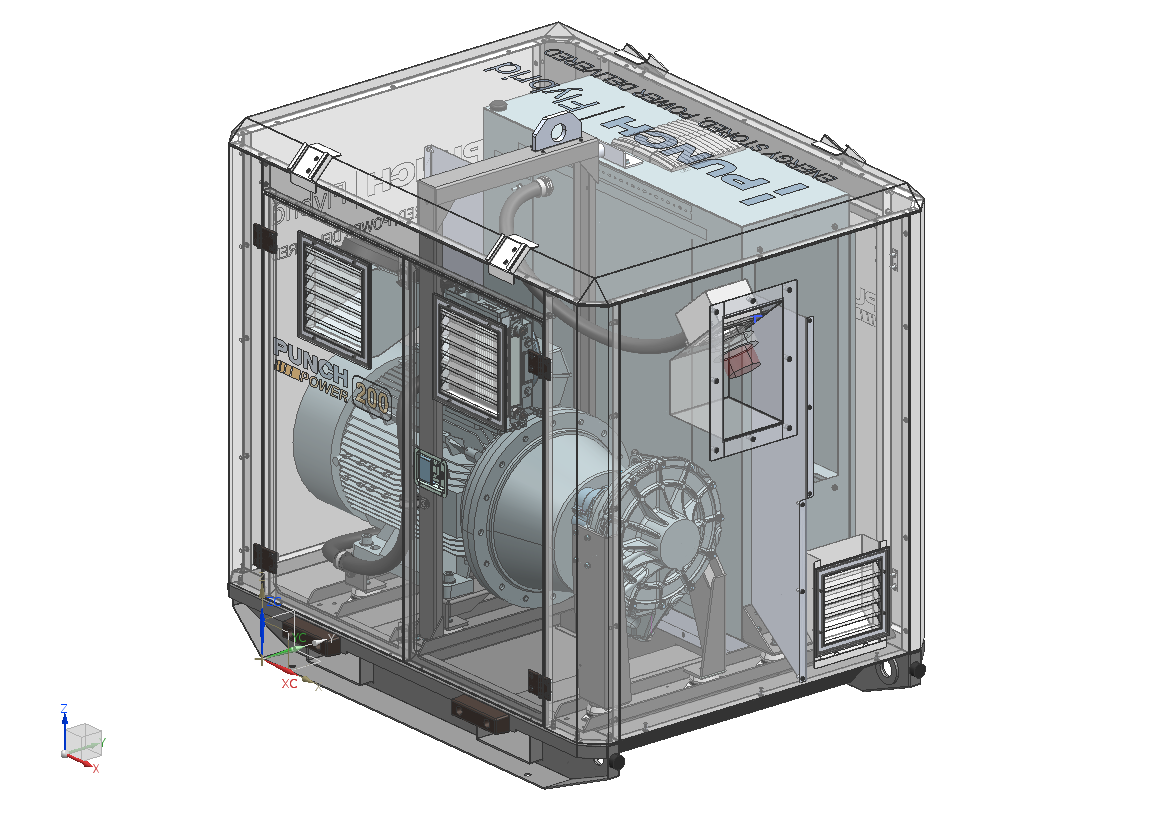Rishi Sunak Confirms Scrapping of Manchester Leg of HS2
At the Conservative Party conference, Prime Minister Rishi Sunak announced his plans to scrap the remaining HS2 rail links. The Birmingham to Euston line will be...
Read Full Article
Technology that has been deployed in Formula 1 motorsport is being trialled at one of HS2’s London construction sites.
As part of HS2 Ltd’s Innovation programme, a tower crane on the railway’s Euston approaches site, that would normally be powered by a 500kVA diesel generator is instead being driven by one less than half that size.
In May 2022, the Euston trial more than halved the diesel consumption of a single tower crane to 6.3lt per hour, saving 4.8 tonnes of carbon – equivalent to the average monthly CO2 emissions of 40 family cars.
The significantly smaller 200kVA generator’s power difference is bridged by pairing it with an energy storing flywheel system developed and supplied by Silverstone-based engineering specialist PUNCH Flybrid.
Incorporated inside the PUNCH Flybrid unit, the flywheel, measuring just 35cm in diameter, is housed in a vacuum chamber to all but eliminate energy-sapping resistance that would result from contact with the air.
The technology matches the power of larger generators by using the 200kVA generator’s surplus power during the crane’s low load periods to charge the spinning flywheel to very high speeds, equivalent to a ground speed of 550mph.
The kinetic energy stored by the flywheel can then be quickly released to support the generator when the crane demands maximum power to lift heavy loads.
The UK firm’s expertise was originally deployed in F1 motorsport and was subsequently put through its paces in endurance racing, including the Le Mans 24 Hour.
Tobias Knichel, PUNCH Flybrid MD, explained how the science, developed for F1 is being applied to HS2: “In motor racing, a team’s quest for higher performance spurs the search for greater efficiency – essentially doing more with less. Racing cars typically accelerate and brake around 500 times during a 90-minute F1 Grand Prix. Each time the car brakes into a corner at high power our flywheel system spins up, storing energy which is then released quickly to boost acceleration performance as the car leaves a bend.
“We developed our flywheel technology to improve performance and efficiency at the very pinnacle of the automotive industry, but its fundamentals mean there are opportunities to deploy its benefits in other sectors. That’s why we’re very pleased to have an opportunity to utilise the technology for the construction industry under HS2’s Innovation programme.”
Picture: a diagram showing the how the flywheel unit sits inside the 200 Unit being trialled at SCS's Euston Approaches site Image Credit: HS2
Article written by Ella Tansley | Published 25 August 2022
At the Conservative Party conference, Prime Minister Rishi Sunak announced his plans to scrap the remaining HS2 rail links. The Birmingham to Euston line will be...
Read Full ArticleA trial at the HS2 construction site at Curzon Street has demonstrated that low-cost sensors could determine sources of air pollution. The study, published in npj...
Read Full ArticleHS2’s new “super hub” station at Old Oak Common in West London has been awarded an outstanding score under the BREEAM assessment. Old Oak...
Read Full ArticleA data centre industry paper reveals that oversights in construction have historically led to costly downtime. The report, Flue First, raises concerns about...
Read Full ArticleLatest data from HS2 shows that subcontracts totalling £7.9 billion have been awarded to over 2,000 UK-based companies. SMEs secured a 45 per cent share of the...
Read Full ArticleIn the George Bradshaw Address for 2023, Transport Secretary Mark Harper outlined plans to modernise the rail sector by “taking politics out of the...
Read Full ArticleConstruction firm BAM has published a position paper on the use of biofuels, lending its support to hydrotreated vegetable oil as a carbon-saving fuel source. The...
Read Full ArticleThe first new UK coal mine project in 30 years has been approved this week by Michael Gove, causing controversy at a time of energy focus. The planning for this...
Read Full ArticleThe Competition and Markets Authority has confirmed that it will not refer the merger of Bouygues and EQUANS to a Phase 2 review. The competition regulator has...
Read Full ArticleGraphenstone is the most sustainably certified paint brand in the world. We spoke to Patrick Folkes, the hedge fund and smoothie entrepreneur who has brought the...
Read Full Article